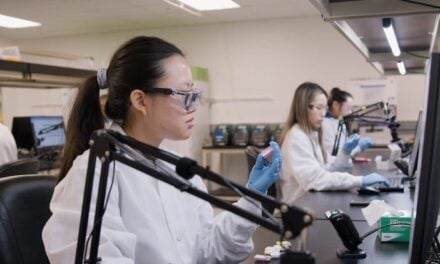AnchorDx, developer of cancer screening and early detection solutions, along with experts from a hospital in China, jointly published an article in the journal, npj Breast Cancer entitled “Circulating Cell-Free DNA-Based Methylation Patterns for Breast Cancer Diagnosis.” The new liquid biopsy diagnostic model is based on circulating cell-free DNA-based (cfDNA) methylation patterns. It can serve as a reliable approach for the early diagnosis of breast cancer and is expected to compensate for the deficiency of mammography.
Mammography-based screening (an X-ray picture of the breast) has contributed to a reduction in breast cancer mortality. However, younger women have lower mammographic sensitivity, especially Asian women, who tend to have a higher density of breast tissue. Therefore, novel and accurate detection methods in early breast cancer diagnosis are needed.
In order to compensate for the defects of mammography, AnchorDx conducted cfDNA methylation profiling to develop and validate a liquid biopsy-based breast cancer diagnostic test. They derived a specific panel of markers based on computational analysis of the DNA methylation profiles from The Cancer Genome Atlas (TCGA). Through training (n=160) and validation set (n=69), they developed a diagnostic prediction model with 26 markers. The model yielded a sensitivity of 94.79% and a specificity of 98.70% for differentiating malignant disease from normal lesions (AUROC = 0.9815, and AUPRC = 0.9800), and had better diagnostic power than that of using mammography (AUROC = 0.9315, and AUPRC = 0.9490). As a result, the cfDNA methylation model for breast cancer diagnosis showed increased performance over mammography.
As a biotechnology company developing high-throughput methylation sequencing of ctDNA for early cancer diagnosis, AnchorDx plans to collect more case and testing data for validating the model. The hope is this model will help lower breast cancer risk, especially for women who are at high risk in China in the near future.





